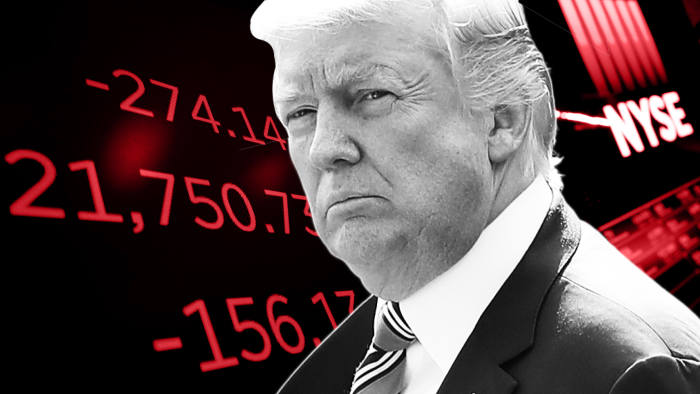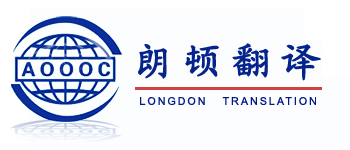A theme that emerged in Washington this summer was Donald Trump’s growing frustration with his stalled trade agenda. And with good reason.
华盛顿今夏的一个话题是唐纳德?特朗普(Donald Trump)对自己陷入停滞的贸易议程日益强烈的挫败感。而且他有充足的理由感到挫败。
One of the president’s biggest economic campaign promises was a new, muscular approach to trade featuring hefty tariffs on China and other rivals as well as a wholesale ripping-up of US trade agreements. Things could still change. Yet, nine months in, it is fair to say Mr Trump is looking increasingly like a bully without a playground in which to exercise his muscle.
特朗普在经济方面最重大的竞选承诺之一是要走一条新的、强硬的贸易路线,特点是要对中国等竞争对手开征高额关税,以及大批撕毁美国签署的贸易协定。未来仍可能出现变数。然而,9个月过去了,老实说,特朗普看起来越来越像一个没有舞台展示自己肌肉的恶霸。
He may bark to aides gathered in the Oval Office that he wants tariffs, and threaten on Twitter to pull out of trade agreements. But the ranks of people in his administration eager or willing to carry out those threats are dwindling. Altogether, the threats themselves are looking increasingly hollow. There are three big reasons for that.
他或许会对聚集在椭圆形办公室的助手们咆哮称要开征关税,在Twitter上威胁退出多个贸易协定。但华府中急于或愿意将这些威胁付诸实施的官员逐渐减少。总之,这些威胁本身看起来越来越空洞。原因主要有三点:
1. Trump doesn’t control the system
1. 特朗普并不控制整个体系
The US presidency comes with a lot of power attached. But the reality is also that its influence over trade is limited, both by the US constitution and existing laws. Mr Trump may want to impose tariffs unilaterally, yet he has very little power to do so on a whim. The US constitution gives the power to regulate trade and impose tariffs to Congress. And even those statutes that give the president the most latitude to act require a process and justification at the very least.
美国总统之职被赋予了很多权力。但现实的另一面是,总统对贸易的影响力受到美国宪法和现行法律的制约。特朗普或许希望单方面开征关税,但他没有多大权力可以随心所欲地这样做。美国宪法将监管贸易和开征关税的权力赋予了国会。即使是那些赋予总统最大行动自由的法规,也至少需要一个过程和正当理由。
Just look at what has happened with the president’s stalled plans to impose tariffs on steel imports on the grounds of US national security. Administration officials insist they are still working on a plan. But what is holding up the steel project — which involved using a 1974 trade law that on the face of it gives the president great powers — is in part the laborious study involved and the inter-agency consultations required.
只需看看特朗普陷入停顿的以美国国家安全为由对钢材进口征收关税的计划遭遇了什么。政府官员坚称,他们仍在制定一项计划。但阻碍这项钢材征税计划——涉及引用1974年通过的一部贸易法,该法案表面上赋予了总统巨大的权力——的部分是所涉及的耗时费力的研究,部分是所需要的跨部门磋商。
Then there is Congress. The Republicans who control the legislature are by and large more pro-trade than the president. They are also more adept at using their power over the system.
然后还有国会。控制国会的共和党总体上比特朗普总统更支持贸易。他们还更善于利用自己的权力来管控这一体系。
Moreover, the steel exercise illustrates two other parts of the system that Mr Trump doesn’t control: US business and economic reality. After a shy start, everyone bar the steel sector in the US business community has grown increasingly vocal about its distaste for anything that raises the price of steel. They have also been building a compelling case for how it would hurt the US economy.
此外,此次钢材关税事件还暴露出这一体系中特朗普并不控制的另外两个部分:美国商业和经济现实。在经过开始时羞于启齿之后,除钢铁业之外,美国商界所有人都越来越大声地反对任何将推高钢材价格的做法。他们也一直在为开征钢材进口关税将损害美国经济寻找一个令人信服的理由。
2. The US doesn’t wield the power Trump thinks it does on trade
2. 在贸易方面,美国并不拥有像特朗普认为的那么大的权势
The best example of this is the (again) stalled debate within the administration over pulling the US out of a South Korea-US trade agreement (Korus) that came into force in 2012. Jonathan Swan of Axios did a nice job at the weekend of detailing the conversation within the administration in recent weeks and how (as was the case with Nafta in April) the president got very close to issuing a formal notice of withdrawal.
这方面最恰当的例子是特朗普政府内部已经停止的关于让美国退出2012年生效的《韩美自由贸易协定》(KORUS FTA)的争论。Axios的乔纳森?斯旺(Jonathan Swan)上周末做得很好,他详细披露了最近几周政府内部的有关对话,以及特朗普多么接近于发布一份退出协定的正式通知——正如今年4月退出《北美自由贸易协定》(NAFTA)那样。
The idea has since stalled, thanks to North Korea’s recent nuclear test and the acceptance (for now) by the president that withdrawing from a trade agreement with South Korea in its wake does not make geopolitical sense.
由于朝鲜近期的核试验,加上特朗普总统(暂时)承认此时退出韩美自贸协定从地缘政治上来说不可取,这一想法已经被搁置。
But the example also illustrates how the US has been misplaying its cards.
但这个例子也说明了美国一直在出错牌。
During a special meeting convened during the summer to discuss Mr Trump’s concerns over Korus and the US trade deficit with South Korea, Robert Lighthizer, the US trade representative, issued a list of unilateral concessions that he wanted to see Seoul make. Those, according to people briefed on the discussions, included accelerating the Korus schedule for South Korea’s gradual removal of certain tariffs on US goods and a freeze on the same applying to Korean imports into the US.
在今夏召开的一次讨论特朗普对韩美自贸协定的担忧及美国对韩贸易逆差的特别会议上,美国贸易代表罗伯特?莱特希泽(Robert Lighthizer)拿出了一份他希望看到首尔做出的单方面让步的清单。据了解此次讨论的人士透露,其中包括让韩国加快逐步取消对美国商品的某些关税,但对韩国出口美国的商品不实施这样的政策。
Mr Lighthizer was in effect using the same threat-laced playbook that he employed in the 1980s while negotiating “voluntary export restraints” with Japan as a senior trade official in the Reagan administration. But the answer this time from South Korea’s trade minister, Kim Hyun-chong, was a resounding “no thanks”.
莱特希泽实际上重施了在上世纪80年代使用过的威胁策略,当时他作为里根(Reagan)政府的一名高级贸易官员与日本谈判“自愿出口限制”。但这一次,韩国贸易部长金铉宗(Kim Hyun-chong)作出了铿锵有力的回答:“不,谢谢”。
The response by Mr Kim, who led the Korean team that negotiated the original deal, was very well calculated. He was aware of one blunt reality: the unwinding of Korus would lead to much higher tariffs on US imports into South Korea than vice versa.
金铉宗的回应是经过精心盘算的,原本韩美自贸协定就是他率领韩国团队谈判的。他很清楚一个事实:韩美自贸协定取消,将导致美国对韩出口商品关税大幅提升,而非反过来。
But there was another. Simply, the US in the Trump era does not speak with a unified voice on trade. Congress, the US Chamber of Commerce, myriad agricultural groups and the nation’s chief executives have all come out against the Trump plan to withdraw from Korus during the past week. And that illustrates Washington’s diminishing power at the negotiating table.
但还有另一个原因。简言之,特朗普时代,美国在贸易问题上并没有统一的声音。近日,美国国会、美国商会(US Chamber of Commerce)、大量的农业组织以及美国的首席执行官们都站出来反对特朗普退出韩美自贸协定的计划。这也说明华盛顿在谈判桌上的影响力会日益减弱。
3. Business is no longer afraid of Trump
3. 商界不再惧怕特朗普
The defining debate so far on trade within the Trump administration has been between the “economic nationalists” and the globalists. However, with one high-profile exception (Mr Trump’s withdrawal on day three of his presidency from the Trans-Pacific Partnership), the globalists have been winning the war.
到目前为止,特朗普政府内部关于贸易的决定性辩论一直是在“经济民族主义者”与全球主义者之间进行。然而,除了一次引人注目的例外——特朗普上任第三天就宣布退出《跨太平洋伙伴关系协定》(TPP)——全球主义者在这场斗争中一直处于上风。

That is a reflection of the work and importance within the administration of globalists such asGary Cohn, head of the National Economic Council, and his team. It also, however, illustrateshow companies are no longer afraid of Mr Trump’s use of the social-media bully pulpit and howhis hyperbole is backfiring.
这反映了全球主义者——如国家经济委员会(National Economic Council)主席加里?科恩(Gary Cohn)等及其团队——在政府内部的工作和重要性。然而,这也说明了企业界不再惧怕特朗普利用社交媒体形式的“天字第一号讲坛”、以及他的夸张言辞会产生什么反作用。
Companies have learnt quickly how to combat the president’s worst ideas on trade anddiscovered they have plenty of allies in both his White House and his cabinet. Many also don’tbelieve his threats any more. For a president whose threats are his biggest currency that is onlylikely to lead to more frustration.
美国企业界很快学会了如何应对特朗普关于贸易的糟糕想法,并发现他们在特朗普的白宫和内阁中都有很多盟友。许多人也不再相信他发出的威胁。对于一位惯于用威胁跟人打交道的总统而言,这只会带来更多的挫败感。




